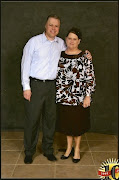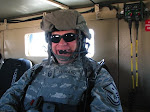The Emergent Church Movement
One of the most prominent and growing movements today is the "Emerging/Emerged/Emergent Church". They claim they are still rising up and their doctrines have not solidified, some claim they do not have any fundamental doctrines but their aim is apparent. These Emerging Christians" seek to deconstruct and reconstruct Christian beliefs, standards, and methods of the church to accommodate the postmodern culture. Proponents of this movement call this "conversation" to emphasize its developing and decentralized nature. The predominantly young participants in this movement prefer narrative presentations drawn from their own experiences and biblical narratives over propositional, biblical exposition.
Emergent methodology includes frequent use of new technologies such as multimedia and the Internet. Emergents communicate in open dialogue rather than the dogmatic proclamation found in historic Christianity. http://en.wikipedia.org/wiki/Emerging_Church
Some Emergents have differing emphases, depending upon the particular author or institution. Much of the Emerging or Emergent Church meld with typical postmodern rationalizations of men in regarding relativism - any lack of standards of truth from scripture.
One common theme is their concern with today’s churches losing touch and remaining relevant with the modern culture. Emphasis is on the "need" to reformat the church and Christianity towards the greater good of building better inroads and relationships with the post modern culture.
Emergents allow for a plurality of Scriptural interpretations. They challenge to re-think, re-analyze, re-interpret, and rewrite the Gospel and scripture interpretations to many possible relative meanings and applications. Biblical truths become vague, and almost scorned, replaced by universalistic and syncretistic themes that resemble mystical concepts, subtly and overtly.
Proponents of the movement advocate a subjective view of doctrine in which they embrace a continual reexamination of and flexible approach to theology which causes them to see the faiths of all religions as a journey rather than a destination. Emergents claim to "hold in tension" even radical differences in doctrines and morals. Emergents see theology as an icon pointing to God rather than as a definition of God, they do not see any doctrinal expositions as definitive.]
Their universalistic concepts of "salvation" (that all the sincere find heaven) are usually regarded as "finding the god within you," (Panentheism) and god is in everything (Pantheism) . Evangelistic church missions are regarded as a waste of time, and church believers in ages past, who died for their faith in Jesus Christ, are regarded as unnecessary zealots.
The Emergent worship focuses on Centering Prayer as a method of prayer, which prepares them to receive the gift of God's presence. Centering Prayer is drawn from ancient prayer practices of the Christian contemplative heritage, notably the Fathers and Mothers of the Desert, Lectio Divina, (praying the scriptures), The Cloud of Unknowing, St. John of the Cross and St. Teresa of Avila. It was distilled into a simple method of prayer in the 1970’s by three Trappist monks, Fr. William Meninger, Fr. Basil Pennington and Abbot Thomas Keating at the Trappist Abbey, St. Joseph’s Abbey in Spencer, Massachusetts” (www.contemplativeoutreach.org)
The Cloud of Unknowing is an anonymous 14th century book presenting contemplative meditation as a spiritual process enabling the ordinary person to enter and receive a direct experience of union with God. This form of meditation, recently known as 'Centering Prayer' (from a text of Thomas Merton), says to be traced from and through the earliest centuries of mystical Christianity. The Centering Prayer centers one on the god within each individual. http://www.letusreason.org/current74.htm During a conference on contemplative prayer, Thomas Merton was asked: “How can we best help people to attain union with God?" His answer was very clear: "We must tell them that they are already united with God." Contemplative prayer is nothing other than coming into consciousness of what is already there. (A Time of Departing by Ray Yungen, p. 80).
Did Jesus or the apostles ever instruct us to pray this way? If not where did it come from? They call it alternative worship. Those involved in the Emerging church make use of liturgies, prayer beads, icons, chants and practices from Roman Catholics, the Orthodox, the Anglicans and Eastern religious practices. They see this as a return to the Ancient Faith that will give them a richer spiritual experience through practicing sacramental rituals. By making it their own experience many see this as privatization of their faith.
Their worship does not just involve old stylistic candles, crosses, and incense. They make use of multimedia- music, video projection screens, vivid fluorescent black lights etc. to bring one into a multi-sensory experience with “the divine.” They walk the labyrinth in the darkness lit by candles and have the fragrance of incense permeate the air as they stop and chant Christian words or Contemplative thoughts and prayers. It becomes a personal spiritual experience as each one enters into their own spiritual space.
“There is a movement in youth ministry that is taking us back to what some would call ancient spiritual practices, or different contemplative tools.” (Mark Oestreicher, President Youth Specialties)
Although some Emergent thinkers such as Brian McLaren, and many Evangelical scholars such as D. A. Carson use "emerging" and "emergent" as synonyms, a large number of participants in the emerging church movement maintain a distinction between them.
"Emergent" is sometimes more closely associated with Emergent Village. Those participants in the movement who assert this distinction believe "emergents" and "emergent village" to be a part of the emerging church movement but prefer to use the term "emerging church" to refer to the movement as a whole while using the term "emergent" in a more limited way, referring to Brian McLaren and emergent village. Many of those within the emerging church movement who do not closely identify with emergent village tend to avoid that organization's interest in radical theological reformulation and focus more on new ways of "doing church" and expressing their spirituality. Mark Driscoll, an early leader associated with the emerging church conversation, now distances himself from the "emergent thread."
Individuals questioning Emergent modern teachings are labeled as "misunderstanding", "judgmental," or "divisive."
http://www.raptureready.com/soap/emergent-church.html.





2 comments:
Hi Don,
Good article on the Emergent church! While I was on Sabbatical this past summer I attended two of these churches to see what was going on. I came away with more of a sense that these particular churches were more concerned about format than function. What really caught me off gaurd though was that my 15 year old simply hated one of the churches.
Some of their concepts in regard to community and re-incorporation of old traditions are at least interesting and if applied could lead to new experiences. But that may be the real issue -- it's all about the experience and at times not so much about Jesus.
Again, way to go!
Mike Johnson
Bend
Thanks, Mike. I found it to be an interesting piece. Best to you..keep up the good work
Don
Post a Comment